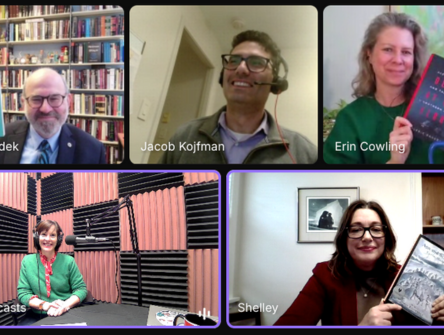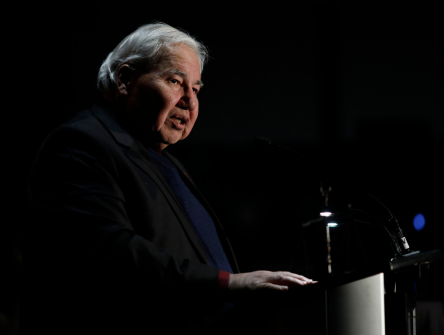Groia ruling: Right approach. Wrong call
The Supreme Court of Canada has ruled in a 6-3 decision that Toronto lawyer Joe Groia was not guilty of committing professional misconduct

The Supreme Court of Canada has ruled in a 6-3 decision that Toronto lawyer Joe Groia was not guilty of committing professional misconduct. The ruling establishes an incivility test for when courtroom conduct crosses the line.
“The CBA is pleased with the SCC’s decision as it underlines the importance of both civility and resolute advocacy in the administration of justice,” CBA President Kerry L. Simmons, Q.C. said in a statement today.
Represented by Norton Rose’s Pierre Bienvenu, Andres Garin and Jean-Christophe Marte, the CBA intervened in support of a test that balances the values courtroom civility, the independence of the judiciary, and the right of litigants to fearless and zealous representation.
Toronto criminal defence lawyer Sean Robichaud also welcomes the decision, as it has “likely quelled a great amount of anxiety among defence lawyers and other litigators who advocate for controversial positions and clients.”
“Until this decision, there was a very omnipresent and realistic concern among lawyers’ that their duty to their clients might be compromised in the face of a regulators overly broad, ex post facto, scrutiny,” he wrote in an email. “Personally, as a defence lawyer, this decision has encouraged me to continue acting for my clients fearlessly. It’s comforting to know the Supreme Court has our back and the invaluable role we play within a healthy democratic system.”
Just to recap, back in 2011, the Law Society of Ontario (then LSUC) found that Groia had repeatedly engaged in uncivil conduct in the defense of his client, John Felderhof, the chief geologist and central figure of the Bre-X Minerals scandal. At trial, Felderhof was acquitted of all charges, but a disciplinary panel nevertheless found that Groia had violated professional conduct rules by lacking respect for the court and making allegations of professional impropriety regarding Ontario Securities Commission prosecutors. He saw his licence briefly suspended.
The top court made it clear that the Law Society is perfectly capable of assessing whether incivility amounts to professional misconduct, but also that “Mr. Groia was both entitled and bound to protect his client’s rights by raising reasonably based, good faith arguments about the propriety of the OSC’s conduct — even though those arguments turned out to be legally incorrect.”
“The Court has recognized that while civility is an important element to a proper functioning justice system, and how lawyers must conduct themselves in a court of law, an assessment of what this means is highly contextual,” says Robichaud. “As Justice Moldaver wrote ‘trials are not — nor are they meant to be — tea parties. A lawyer’s duty to act with civility does not exist in a vacuum.’”
Ultimately the court found that the test that the law society appeal panel devised for evaluating a lawyer’s conduct was the right one — “both flexible and precise,” according to the majority. However, its finding of professional misconduct was unreasonable.
[153] First, by failing to correct Mr. Groia’s legal mistakes, the trial judge buttressed the reasonableness of Mr. Groia’s sincerely held but mistaken belief that the OSC prosecutors were in fact acting abusively. Second, the trial judge’s failure to admonish Mr. Groia for the manner in which he raised his allegations signaled to Mr. Groia that there was nothing wrong with the way he was impugning the prosecutors’ integrity. It was therefore imperative for the Appeal Panel to consider the trial judge’s reaction when evaluating Mr. Groia’s conduct. In this regard, I note that this was a judge-alone trial, and admonishing Mr. Groia for the manner in which he was impugning the prosecutors’ integrity could not possibly have prejudiced him the way it might have had this been a jury trial. Equally, there was nothing preventing the trial judge from admonishing Mr. Groia for his mistaken legal beliefs and letting him know that they did not form a proper basis for allegations of prosecutorial misconduct.
[154] Nor did the Appeal Panel incorporate Mr. Groia’s marked change in behaviour in response to the directions of the trial judge and the reviewing courts into its analysis. When the trial judge instructed Mr. Groia how to object when he thought the prosecution was offside, Mr. Groia, for the most part, listened. And after receiving a “public shaming” from Campbell J. and Rosenberg J.A., Phase Two of the Felderhof trial unfolded without incident. It was incumbent on the Appeal Panel to factor in Mr. Groia’s compliance with the judges’ directions when assessing his behaviour. Both the trial judge’s passivity and Mr. Groia’s compliance with the directions given by every judge involved in this case militate against a finding of professional misconduct.
The three dissenters in the ruling were Justices Karakatsanis, Gascon and Rowe.


